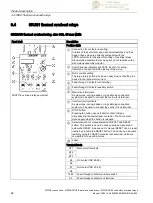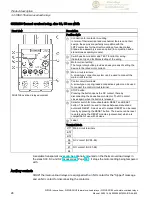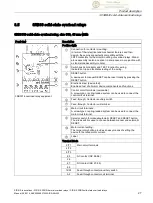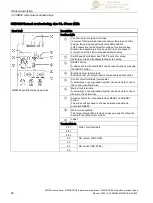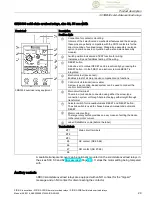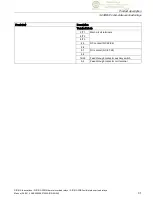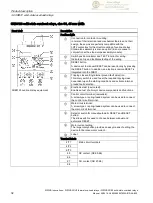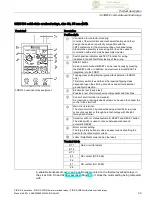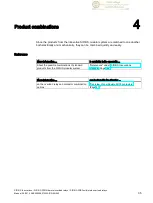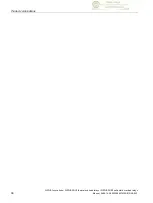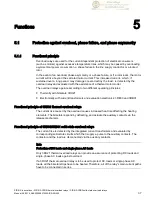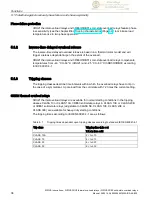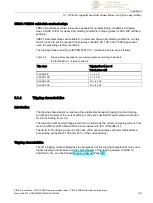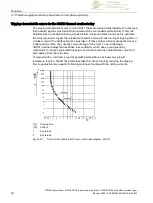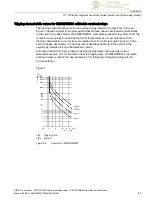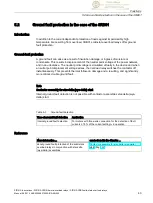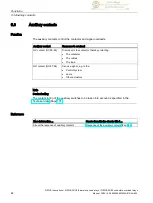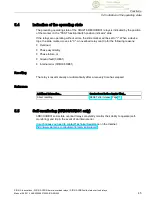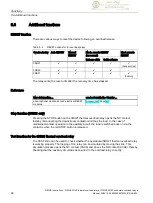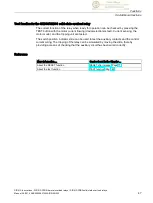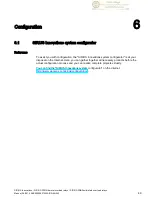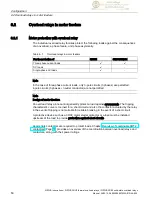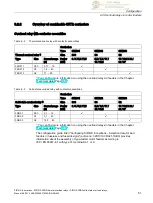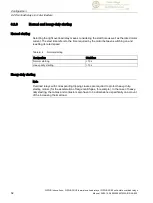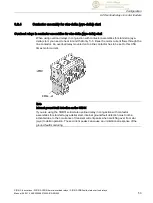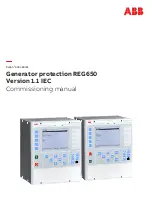
Functions
5.1 Protection against overload, phase failure, and phase asymmetry
SIRIUS Innovations - SIRIUS 3RU2 thermal overload relays / SIRIUS 3RB3 solid-state overload relays
38
Manual, 09/2014, A5E03656507420A/RS-AA/002
Phase-failure protection
3RU21 thermal overload relays and 3RB30/3RB31 solid-state overload relays feature phase
loss sensitivity (see the chapter titled Tripping characteristics (Page 39)) to minimize load
temperature rise in two-phase operation.
5.1.2
Inverse-time delayed overload release
The inverse-time-delayed overload release is based on a thermal motor model and will
trigger a release dependent upon the extent of the overload.
3RU21 thermal overload relays and 3RB30/3RB31 solid-state overload relays compensate
temperatures from -40 °C to 60 °C (3RU21) and -25 °C to 60 °C (3RB30/3RB31) according
to IEC 60947-4-1.
5.1.3
Tripping classes
The tripping classes describe time intervals within which the overload relays have to trip in
the case of a symmetrical, 3-pole load from the cold state with 7.2 times the current setting.
3RU21 thermal overload relays
3RU21 thermal overload relays are available for normal starting conditions in the tripping
classes CLASS 10 or CLASS 10A. 3RB30 solid-state relays in CLASS 10E or CLASS 20E,
or 3RB31 solid-state relays (adjustable in CLASS 5E, CLASS 10E, CLASS 20E or
CLASS 30E) are available for heavy-duty starting conditions.
The tripping times according to IEC/EN 60947-4-1 are as follows:
Table 5- 1
Tripping times dependent upon tripping classes according to standard IEC/EN 60947-4-1
Trip class
Tripping time t
A
in s at
7.2 x I
e
from cold
CLASS 10A
2 < t
A
≤
10
CLASS 10
4 < t
A
≤
10
CLASS 20
6 < t
A
≤
20
CLASS 30
9 < t
A
≤
30

